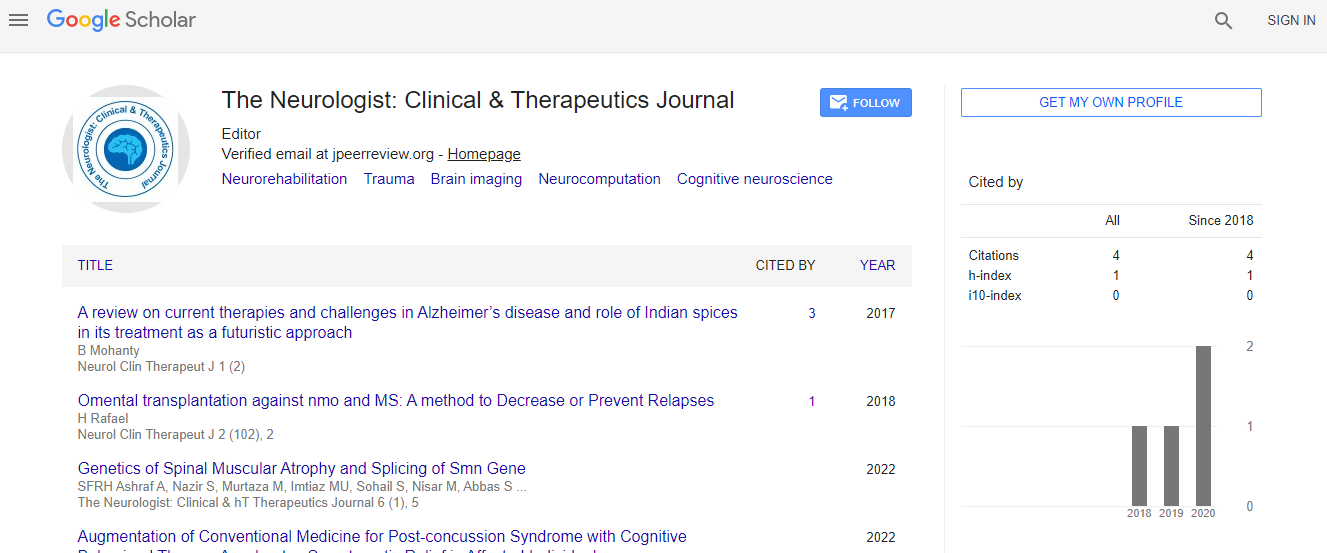Neurophobia Unveiled Exploring Traineesâ Perceptions and Challenges in Neurology Education
*Corresponding Author: Arica Reecy, Department of Medicine, University of British Columbia, Vancouver, Canada, Email: reecyarica41@gmail.comReceived Date: Sep 03, 2024 / Published Date: Sep 30, 2024
Citation: Arica R (2024) Neurophobia Unveiled Exploring Trainees’ Perceptionsand Challenges in Neurology Education. Neurol Clin Therapeut J 8: 222.
Copyright: © 2024 Arica R. This is an open-access article distributed under theterms of the Creative Commons Attribution License, which permits unrestricteduse, distribution, and reproduction in any medium, provided the original author andsource are credited.
Abstract
Neurophobia a term describing the fear and anxiety trainees experience towards neurology has been recognized as a significant barrier in medical education. Despite the critical role of neurology in clinical practice, many trainees report difficulty understanding neurological concepts and lack confidence in diagnosing neurological disorders. This study aims to explore the factors contributing to neurophobia among medical trainees, identify gaps in neurology education, and propose potential solutions to enhance the learning experience. A cross-sectional survey was conducted among medical students, residents, and fellows in various specialties. The survey assessed their perceptions of neurology, levels of confidence in diagnosing neurological conditions, perceived complexity, and overall interest in the field. Focus group discussions and interviews were conducted to gather qualitative insights into educational challenges. The findings revealed a significant prevalence of neurophobia among medical trainees, driven by perceptions of neurology as overly complex and difficult to apply clinically. Key challenges identified included inadequate teaching time, lack of interactive learning, and insufficient exposure to practical neurological cases. Participants expressed a desire for more hands-on neurology training, early clinical exposure, and simplified teaching methods. Neurophobia remains a prevalent issue in medical education, hindering trainees’ engagement with neurology. Addressing this challenge requires a multifaceted approach that includes curriculum reform, increased practical training, and supportive learning environments.

 Spanish
Spanish  Chinese
Chinese  Russian
Russian  German
German  French
French  Japanese
Japanese  Portuguese
Portuguese  Hindi
Hindi 